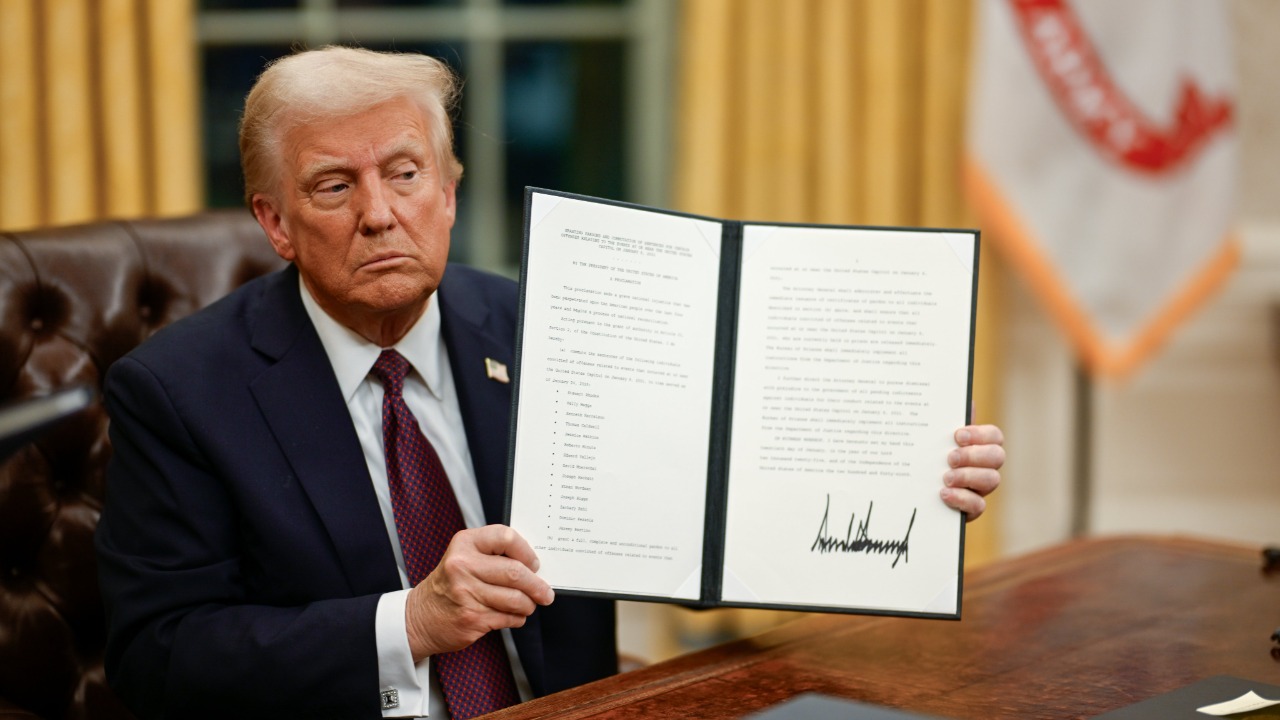
On October 23, 2025, President Donald Trump issued a pardon for Changpeng Zhao, the founder of Binance, the world’s largest cryptocurrency exchange. This unexpected move has significant implications for the cryptocurrency industry, as it removes the legal barriers Zhao faced following his conviction on charges related to Binance’s operations. The pardon has sparked widespread media coverage, underscoring Trump’s influence on financial regulations and the potential shifts in U.S. policy toward digital assets.
Changpeng Zhao’s Background and Conviction
Changpeng Zhao, often referred to as CZ, is a pivotal figure in the cryptocurrency world, having founded Binance, which has grown to become the largest cryptocurrency exchange by trading volume. Zhao’s journey from a tech entrepreneur to a leading figure in the digital currency space is marked by his ability to navigate the rapidly evolving landscape of cryptocurrency. However, his success was marred by legal challenges when he was convicted on charges related to Binance’s operations. These charges highlighted the regulatory scrutiny faced by cryptocurrency platforms and their leaders. Despite these challenges, Zhao’s influence in the industry remained significant, as he continued to be a key player in shaping the future of digital finance.
The conviction of Zhao was a major event in the cryptocurrency sector, drawing attention to the legal complexities and regulatory hurdles that exchanges like Binance face. His legal troubles underscored the ongoing tension between innovative financial technologies and existing regulatory frameworks. The charges against Zhao were seen as a test case for how governments might regulate the burgeoning cryptocurrency market, which has often operated in a legal gray area. Zhao’s conviction was a reminder of the risks associated with operating in this space, even for industry leaders.
The Pardon Announcement
President Trump’s decision to pardon Changpeng Zhao was formally announced on October 23, 2025, and quickly became a focal point of media coverage. The pardon specifically addressed Zhao’s prior legal issues, effectively nullifying the consequences of his conviction. This decision was seen as a significant intervention by the U.S. government in the ongoing legal challenges faced by the cryptocurrency industry. The pardon was not only a personal reprieve for Zhao but also a broader signal of potential changes in how the U.S. might approach cryptocurrency regulation in the future.
The announcement of Zhao’s pardon was met with a flurry of media reports, highlighting the surprise and implications of Trump’s decision. The timing of the pardon, amid ongoing debates about the regulation of digital assets, suggests a possible shift in the U.S. government’s stance on cryptocurrency. By pardoning Zhao, Trump has potentially set a precedent for how similar cases might be handled, indicating a more lenient approach to the regulation of digital currencies. This move could encourage further innovation in the sector, as industry leaders may feel more confident in navigating the regulatory landscape.
Immediate Media Coverage and Reactions
The news of Changpeng Zhao’s pardon was rapidly disseminated across international media outlets, with headlines such as “Trump pardons Binance founder Changpeng Zhao” capturing the attention of audiences worldwide. The global coverage of the pardon underscored its significance not only for Zhao and Binance but also for the broader cryptocurrency industry. Media reports emphasized the potential implications for crypto regulation, as the pardon could signal a shift in how governments approach the oversight of digital currencies.
Reactions to the pardon were mixed, with some viewing it as a positive step toward fostering innovation in the cryptocurrency sector, while others expressed concern about the message it sends regarding accountability and regulation. The pardon has sparked discussions about the balance between encouraging technological advancement and ensuring compliance with legal standards. As the cryptocurrency market continues to grow, the impact of such high-profile decisions will likely influence the direction of regulatory policies and the industry’s development.
Implications for Cryptocurrency and Regulation
The pardon of Changpeng Zhao has significant implications for the future of cryptocurrency and its regulation in the United States. By removing the legal obstacles facing one of the industry’s most prominent figures, the pardon may encourage other cryptocurrency leaders to push the boundaries of innovation without fear of legal repercussions. This could lead to increased investment and development in the sector, as companies and entrepreneurs feel more secure in their ability to operate within the U.S. market.
Moreover, Zhao’s potential return to a leadership role at Binance could further strengthen the company’s position in the global cryptocurrency market. As a key executive, Zhao’s influence and vision could drive Binance’s continued growth and innovation. The pardon also highlights the ongoing debates over crypto enforcement, as policymakers grapple with how to effectively regulate a rapidly evolving industry. The decision to pardon Zhao may serve as a catalyst for reevaluating existing regulatory frameworks and exploring new approaches to overseeing digital assets.
Overall, the pardon of Changpeng Zhao by President Trump represents a pivotal moment for the cryptocurrency industry. It not only affects Zhao and Binance but also has broader implications for the regulation and future of digital currencies. As the industry continues to evolve, the outcomes of such high-profile decisions will play a crucial role in shaping the landscape of cryptocurrency and its integration into the global financial system.
More from MorningOverview